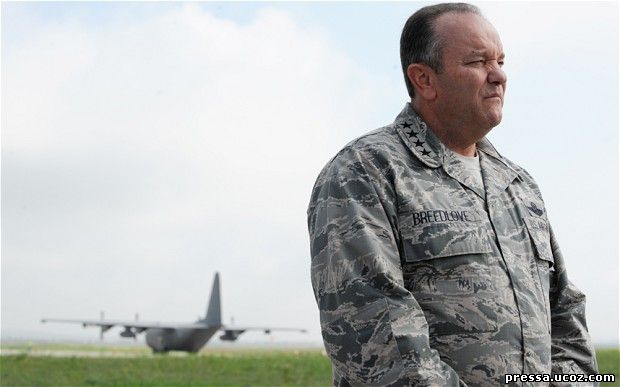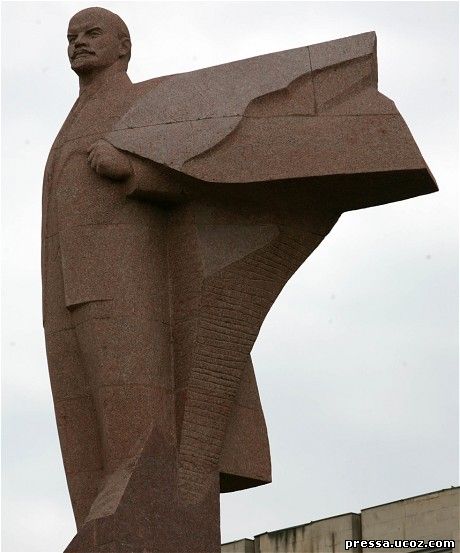Мы разрешаем Вам комментировать статьи из иностранных СМИ и публиковать свои статьи и обращения к главам государств.
Убедительная просьба излагать свои мысли коротко и без использования ненормативной лексики. У нас на сайте желательно писать на русском языке, приветсвуется перевод на английский язык если вы обращаетесь к руководству или гражданам других стран.

Российские войска готовы двинуться в Молдову,
командир НАТО предупреждает
Russian troops poised to 'run' into Moldova,
Nato commander warns

A pro-Russian enclave of Moldova could be Moscow's next target after Crimea, Nato warns
Fears that Russia could seize a second chunk of territory in eastern Europe grew on Sunday after Nato's top commander warned that Moscow's troops were poised to move into a pro-Moscow enclave of Moldova.
US Air Force General Philip Breedlove said that Russian troops massing on the eastern border of Ukraine were well-positioned to head to Transdniester, a Russian-speaking enclave that has declared independence from the rest of Moldova.
Transdniester's people have long sought closer ties with Moscow, and to this day, the streets of the capital, Tiraspol, are decked out with statues of Lenin and other symbols of the Soviet Union.
Gen Breedlove said it would give President Vladimir Putin the perfect pretext to send troops in there as a "protection" force for ethnic Russians, just as he has done with his military annexation of Crimea.
"There is absolutely sufficient (Russian) force postured on the eastern border of Ukraine to run to Transdniester if the decision was made to do that and that is very worrisome," said Gen Breedlove, who is Nato's Supreme Allied Commander in Europe.
Gen Breedlove issued his warning at event in Brussels held by the Marshall Fund, a German think-tank. On Tuesday, the government of Moldova warned Russia against any moves to annex Transdniester, following comments from the speaker of Transdniester's parliament urging Moscow to incorporate the enclave.
Gen Breedlove said he was concerned that the Kremlin viewed Transdniester as the "next place where Russian-speaking people may need to be incorporated."
"The (Russian) force that is at the Ukrainian border now to the east is very, very sizeable and very, very ready," he said.
He did not specify how the Russian forces would get there. Transdniestria is landlocked and to go there by land would require Russian troops to travel through much of western Ukraine. However, Russian forces based in the Eastern side of the Black Sea and Crimea could conceivably stage an airlift.

A statue of Lenin outside Tiraspol's Parliament building (Julian Simmonds)
Since it fought a brief separatist war to breakaway from Moldova in 1991, Transdniester has been home to "peacekeeping" garrison of around 1,000 Russian troops. Until now, the Kremlin is thought to have treated the enclave as being too small and unimportant to be worth incorporating into the Russian Federation. It currently recognises Transdniester as being part of Moldova. But the recent events in Crimea may have changed that calculus.
Transdniester issues its own passports, stamps and currency, despite the fact that hardly any other country in the world recognises it as a sovereign state. The European Union and Ukraine have long regarded it as a haven for smuggling and other illegal activities.
Moldova, whose five million people mostly speak the Latin dialects of neighbouring Romania, is Europe's poorest country, and has ambitions to eventually become part of the European Union.
It is currently negotiating a free trade agreement with the European Union, the same one that Ukraine's ousted President, Viktor Yanukovych, abandoned last November amid massive Kremlin pressure.
Signing the free trade agreement would take Moldova firmly into the European fold, but Transdniester's unresolved status would make full membership of the EU or Nato more complicated. As such, some believe the Kremlin has a direct vested interest in fomenting further pro-Russian sentiment in Transdniester.
In an interview the Telegraph, Lurie Leanca, the prime minister of Moldova, said: “We have reasons to be worried but so far this situation is under control and I hope it will stay like this for the coming weeks and months.
“Of course we watch carefully what happens there in Transnistria, we look carefully at what the Transnistria leadership does, and what the Russian military do.
"The Transnistrian region, this is not a secret to anyone, is able to survive because of the direct support from Moscow. We also take into the account the official Russian position that Transnistria is a part of Moldova.”
| 